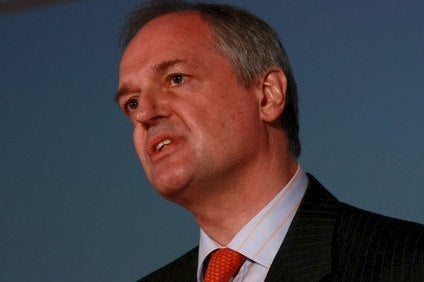
Unilever has said it wants to move its food business to a new growth phase by investing in areas that offer the greatest top-line potential in emerging and developed markets.
The company said yesterday (23 July) its food unit booked a 1.4% increase in first-half underlying sales, which rose to EUR6.4bn (US$6.99bn). This top line performance trails the Unilever group average, which includes the contribution of its faster-growth home and personal care units, as well as its ice cream-and-tea refreshments business. On a group-wide basis, Unilever's underlying sales were up 2.9%.

Discover B2B Marketing That Performs
Combine business intelligence and editorial excellence to reach engaged professionals across 36 leading media platforms.
Discussing the firm's performance during a conference call with analysts, CEO Paul Polman conceded Unilever's food unit has been used as a "significant cash contributor" by the group. For some years, the company has reinvested cash generated in foods to develop the personal and home care side of the business. Unilever is now the world's second largest personal care company, behind L'Oreal, and the company completed four recent personal care acquisitions in what it terms the "prestige beauty" sector – REN, Kate Somerville, Dermalogica and Murad.
This shift, Sanford Bernstein analyst Andrew Wood says, suggests Unilever's "future" is in home and personal care. "CEO Polman has had an informal target of Unilever becoming 70% [home and personal care] by 2020… This strategic evolution makes sense given Unilever’s personal care business is high-growth and high-margin," Wood says. "As Unilever becomes more of a personal care company it should see improved operating performance and valuation from investors, particularly given its recent reclassification to personal products [from food] on the S&P and MSCI indices."
However, there was some sign yesterday Unilever has switched its attention to the task of lifting the top line sales trends of its food businesses. Where the company had previously focused on portfolio pruning in foods to build margins and unlock capital (which was invested in non-food), Polman suggested it will now start investing in areas of growth in foods.
The chief executive said: "In food which has been a significant cash contributor to the company, our priority now is to get the business growing, while sustaining the strong levels of profitability and cash flow.

US Tariffs are shifting - will you react or anticipate?
Don’t let policy changes catch you off guard. Stay proactive with real-time data and expert analysis.
By GlobalData"We're doing this by investing in the areas where there is most opportunity for growth, like expansion in emerging markets with our cooking ingredients and the move towards more natural products and simplifying our portfolio."
A spokesperson for Unilever confirmed the group is repositioning its portfolio towards "more attractive segments" within food. This is being supported by investments in innovation and marketing, the spokesperson continued. "We continue to invest in marketing and innovation across all our categories. We will also continue to drive market development."
Unilever attributed its sales growth in food over the first half to a positive response to initiatives such as the roll out of "healthier" fortified products in emerging markets. Unilever pointed to the success of its iron-enriched stock cubes in Africa, where iron deficiency is a sizable health issue. "Cooking products in emerging markets grew in high single-digits and represent an increasingly important part of our foods portfolio," Polman said.
The company also stressed the work it is doing to grow food sales in developed markets. Efforts have centred on a move to more "natural" products, including the launch of Knorr wet soups in Europe.
As Unilever works to grow the areas it has identified as offering greatest potential, the company is also making progress on "stabilising" its struggling spreads sales. The group completed the spin-off of its spreads business into a stand-alone unit at the start of this month. "Not an easy feat," Polman noted. "It's been a major transformation with new processes, reporting systems, legal structures all delivered on time."
Some pundits have speculated separating spreads will arguably make a disposal of the business an easier and more straight forward process. For its part, Unilever insists the move that will provide spreads with greater "focus" as it works to turnaround the fortunes of the unit.
Polman said: "It's too early, after only three weeks, to see any impact of the change yet, but I am certain that it will bring a lot more focus to our strategy of repositioning that part of the business to a more attractive segment."
Unilever is developing its spreads brands with NPD, moving brands such as Stork and Flora towards on-trend sub-categories like melanges and premium cooking oil blends.
Elsewhere, Unilever booked an increase in like-for-like sales of 2.7% at its refreshments unit, which includes ice cream brands Magnum and Ben & Jerry's. Here too Unilever is strengthening its premium offering with the "affordable luxury" of brands like Magnum striking a note with consumers.
Polman flagged the strong performance of US premium ice cream brand, Talenti, with he said the company has been able to grow strongly by feeding the recently-acquired brand into Unilever's distribution channels. "The fastest growth was coming from our premium brands, like Talenti, our recent acquisition does not yet get counted in underlying sales, but it grew more than 50% in the first half as we increased distribution."
The move towards premium products should also enable Unilever to lift refreshment margins, which rose 60 basis points in the period.





